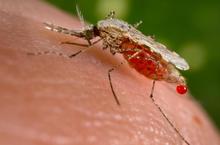Although the mosquito season should be gradually disappearing with fall weather approaching, more cases of mosquito borne diseases are being reported throughout the USA.

Mosquito - Carrier of infectious horse diseases
Getting statistics for mosquito-borne diseases in horses is difficult and state officials say they expect up to four unreported cases for each confirmed case of West Nile virus and Eastern Equine Encephalomyelitis, making the actual impact larger than the numbers show.
During the past week, eleven equine cases of West Nile virus (WNV) have been diagnosed in nine Colorado counties. The WNV-positive horses are from Alamosa, Boulder, Broomfield, Conejos, Fremont, Jefferson, Larimer, Park, and Weld counties.
A horse stabled in the town of Mentz in New York has also tested positive for West Nile Virus, the Cayuga County Health Department announced on Monday.
In addition, Michigan officials say a horse in Barry County has been diagnosed with the serious mosquito-borne disease Eastern equine encephalitis. The Department of Agriculture and Rural Development says itâs the first reported case of Eastern equine encephalitis in the state this year.
Getting exact statistics for mosquito-borne diseases in horses is difficult. Many state officials say they expect up to four unreported cases for each one confirmed case of West Nile virus and Eastern Equine Encephalomyelitis, making the actual impact much larger than the numbers show.
Many states have an extended mosquito breeding period, so horse owners should talk to their veterinarian about how to protect their animal year-round,â North Carolina State Veterinarian David Marshall said. âIn addition to getting animals vaccinated, everyone needs to be extra vigilant now to reduce the breeding grounds for mosquitoes. Take the time now to rid your yard and pasture of any standing water to reduce the risk.â
The EEE and WNV vaccinations initially require two shots, three to four weeks apart, for horses, mules and donkeys that have no prior vaccination history. Neither vaccination fully protects the animal until several weeks after the second shot, so it is best to make sure horses are protected throughout the year.
